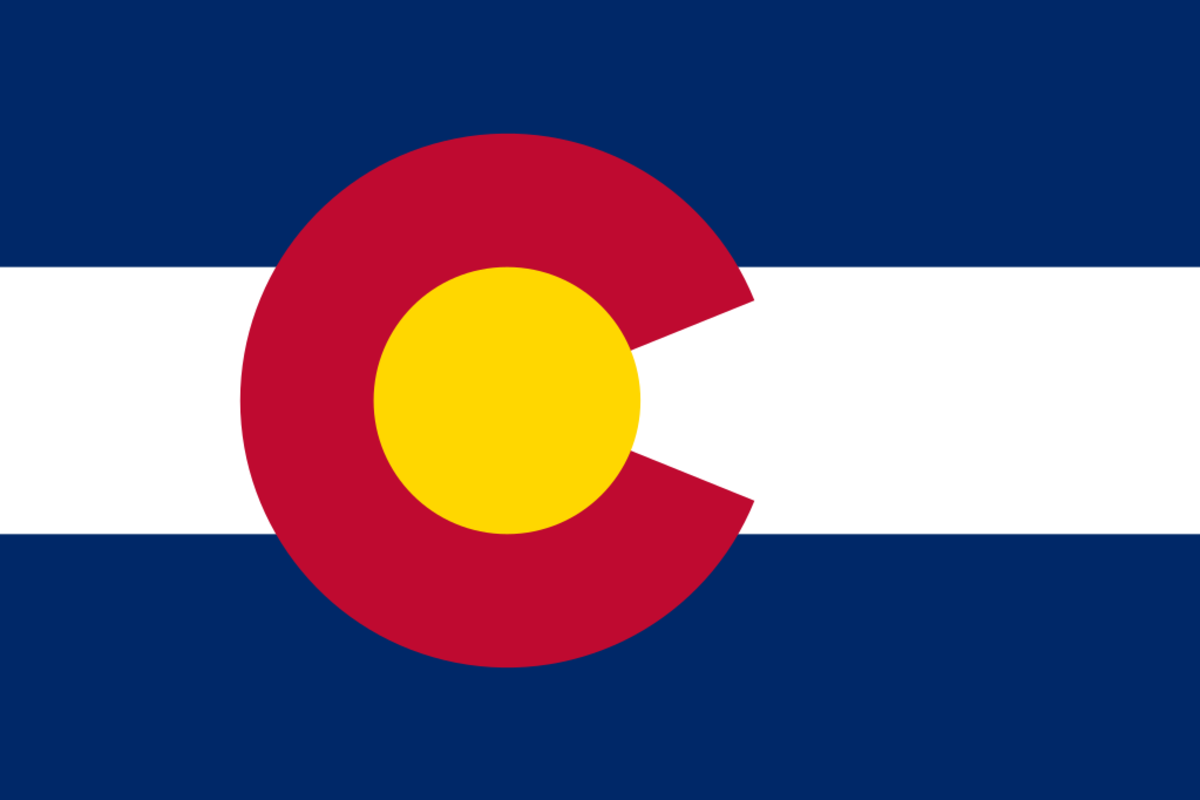Colorado Divorce Laws

The divorce rate in Colorado is among the highest in the United States. According to NCHS data for 2021, for every 1,000 people, three have ended their marriages in the Centennial State. This ranked Colorado’s 3.0 divorce rate as the 15th highest in the country, not far behind those of Alaska and Virginia.
Divorce is called the “dissolution of marriage,” as specified in Colorado Revised Statutes Section 10-14-106. This law lists the basic requirements for obtaining a divorce in the state, and people who wish to end their marriage will not be able to do so without going through the procedure that the law requires.
If you are someone who is contemplating divorce, this article will help you learn more about the state’s divorce laws, the steps involved in obtaining a divorce, and frequently asked questions about the dissolution of marriage. By having this knowledge, you can prevent potential delays and hurdle obstacles to getting a divorce in Colorado.
Is Colorado a No-Fault State When It Comes to Divorce?
Yes. Wrongdoing by either or both spouses will not have any effect upon the parties being able to proceed to getting a divorce.
A Colorado divorce petition only needs to state the marriage is “irretrievably broken.” The parties are not required to mutually declare their marriage is unsalvageable; it is adequate for one party to affirm they foresee no more hope of restoring the relationship.
The old grounds for divorce in Colorado, such as cruelty, adultery, and abandonment no longer apply. In addition, objections to a divorce petition can no longer cite insanity, condonation, and collusion to stop the court from issuing a divorce decree. The only impact fault could have is on subsequent parenting orders; domestic violence, addiction issues or any other inappropriate behavior by a parent which the child could comprehend could cause the Court to make Orders for the Best Interests of the Child which results in disproportionate parenting time and/or decision making.
Contested vs. Uncontested Divorce in Colorado
If you and your soon to be former spouse cannot reach agreements for allocation of marital property or of parental responsibilities, you can expect to proceed to hearing and participate in a “contested divorce”. A contested divorce will be much more consuming of resources such as time and money as compared to a “uncontested divorce” where the parties agree upon who gets what and why. Should you and your spouse be able to reach agreements upon the allocation of marital property and the allocation of parental responsibilities they simply need to file a joint petition for dissolution of marriage (with or without children accordingly) and reach divorce settlement agreements upon the following:
Property Division
Spousal Maintenance (alimony)
Parental Decision Making (Child Custody)
Child Support
Parenting Time.
To help you navigate the divorce application procedure, the following sections will discuss what happens in key stages of the process. These, together with your lawyer, will aid in your preparation for the potentially grueling journey to freedom that divorcing couples go through.
How to File for Divorce in Colorado
Before going out to file your divorce papers in Colorado, make sure you or your spouse and, if applicable, your minor children meet the following residency requirements:
At least one of the parties must have lived in Colorado for at least 91 days before the divorce petition can be filed to ensure a Colorado County has proper jurisdiction..
The children of the marriage must have resided in Colorado for at least 181 days before the filing of the petition.
1. Fill Out the Divorce Forms
The primary requisite form to be completed and submitted to the Court is the Petition for the Dissolution of Marriage, you should fill this out as completely as possible to allow the Court and the other party to ascertain the legal road ahead. The law does not require both parties submit a joint petition with your spouse, the filing may be done individually. If you are the one who initiated the divorce, you are called the “petitioner” and your spouse the “respondent.”
In addition to filling out the petition, you must complete a Summons for Dissolution of Marriage or Legal Separation if you are the sole petitioner and not filing jointly. The Case Information Sheet which gathers your family details and contact information is also required.
2. File the Divorce Papers in Court
After filling out the forms if your attorney has not already done so for you,, proceed to the court clerk’s office within the Courthouse in the county of you or your spouse’s residence for at least the last 91 days; this is where you will file your divorce papers. Once you have submitted your forms you may ‘opt-in’ to filing and receiving any subsequent forms electronically, which is recommended as a matter of convenience.
As of 2023, there is a filing fee of $230, but the court may waive it if you are unable to pay. To apply for a waiver of the filing fee, you must submit a Motion to File Without Payment and Supporting Financial Affidavit.
3. Serve the Divorce Papers on Your Spouse
In a contested action for dissolution of marriage, it is required the other party named in the petition or complaint (the respondent) is served with the divorce papers.
This stage in a divorce application is called “service of process” and provides the other party their Constitutional RIght to ‘Notice’ they have been requested to appear in Court. Once all the necessary legal documents are served to the respondent, they have 21 days (35 days if they live outside of Colorado) to examine and respond to the petitioner’s demands within the Petition.
The respondent may waive formal service in writing. The waiver must be signed before a notary or court clerk. Otherwise, the following methods are acceptable to have the documents delivered to your spouse:
Regular Mail
This option is preferable if your spouse is willing to cooperate. All they need to do is sign the Acceptance of Service form to confirm receipt of the papers. They must return a signed copy of Waiver/Acceptance of Service of the divorce papers and return back to you, which you must then also submit a copy to the Court to ensure the Constitutional ‘Notice’ requirement of the legal proceeding is met.
Certified Mail
Serving the divorce papers by registered or certified mail provides proof that you did send the documents to your spouse. You do it by going to the Post Office to mail the papers. You will receive a slip from the postal service as proof of mailing.
A green card called the “return receipt” will be attached to your letter. Your spouse must sign this card and mail it back to you. When you receive the return receipt, keep it and the slip in a safe place. The court will collect them, together with the Proof of Service form.
Hand Delivery
This is also known as personal service. Any legal adult (other than a party or party’s counsel) may physically hand the divorce papers to your spouse and is referred to as service of process. There are three possible process servers:
Anyone at least 18 years old
A professional process server
The County Sheriff.
If your spouse’s whereabouts are unknown, service by publication or by posting is possible upon a showing best efforts were made to personally serve the other party and with the Court’s approval upon a motion for the same.
4. Submit Financial Disclosures
By Court Rule, within 42 days after your spouse receives the divorce petition, both of you are required to exchange financial information. Full disclosure of income, assets, and monthly expenses is mandatory, JDF Form 35.1 notes the documents which are required to be disclosed with your Sworn Financial Statement . If the court later discovers you intentionally withheld disclosures of your assets, the Court will often award the undisclosed asset to the other party as a sanction for misleading the Court.
5. Attend Settlement Negotiations
The next step in your divorce is to discuss how you and your spouse will equitably divide the marital property and allocate parental responsibilities. The outcome of the subsequent discussions, the requisite mediation and any hearing (collectively known as litigation) will have a significant impact on your life after your divorce. Therefore, it is strongly advisable you retain a competent divorce attorney whom you feel comfortable with to have the best opportunity for a fair settlement both parties can live with.
Initial Status Conference
The first appearance before the Court is called the Initial Status Conference or “ISC” and generally takes place within the 42-day period after service of the summons. The parties and their counsel will address deadlines, the need for any professionals to investigate and submit an independent report to the Court and other pressing issue to bring to the Court’s attention during the pendency of the divorce proceedings . The Court, upon the request of one or both or the parties may also schedule a hearing to hear requests and arguments for temporary orders such as the use of the martial home, parenting time, spousal and/or child support or any other matter which may require the Court’s directives to resolve the impasse between the parties.
Temporary Orders Hearings
Upon a request from one or both of the parties, the Court may schedule and hold a Temporary Orders Hearing to make interim Orders for during the pendency of the case, which will last at least 91 days from the date of service and could last many more months if there is significant controversy for the parties and their attorneys to work through. The Court may issue Temporary Orders as necessary to ensure the best interests of the children are met, to ensure the martial assets are preserved, to address the financial needs of the parties and/or the children are taken care of or any other order which may be necessary to ensure peaceful and organized proceedings.
Discovery
Each party is required by rule to fully disclose any piece of material information or documentation as may be necessary for the determination of the outcome of the case at all times even without request from the other party. Additionally, a party may request to use a “formal discovery request” to receive additional disclosures, details or information from your spouse to ensure a just divorce. For example, if a family asset has gone missing or you wish for more details about a bank account or you wish to have further understanding about a recent or past incident you may formally request the other party produce it. Generally, the court prefers formal discovery be requested after the initial financial disclosures have been received.
Mediation
Should there remain contested issues after the time for initial financial disclosures, the Court will Order the parties to Alternative Dispute Resolution (ADR) or more commonly known as mediation with the hope the parties can resolve their issues without further intervention from the Court. The Parties will need to agree upon a trained mediator to act as a third-party neutral with the goal of initiating compromise between the parties. Should a single mediation session not resolve all of the contested issues and there is mutual optimism further agreements can be made, the parties may wish to schedule and attend a second mediation. If mediation and discussions between the parties or their counsel are unsuccessful in resolving all parenting and allocation of marital property issues…you will both now be going to a formal hearing before the Judge!
6. Appear in Court for Permanent Orders Hearing and Final Divorce Decree
If the parties were unsuccessful in reaching all of the requisite agreements necessary for the Court to order the marriage dissolved, you will then schedule and attend a formal evidentiary hearing where the parties will introduce evidence and provide testimony to the Court supporting their positions upon the unresolved issues. The Court will then take all the information presented, interpret how the law prescribes the situation be handled and then will make the Orders which the parties will both be made to follow.
How Is Property Divided in a Colorado Divorce?
Colorado courts divide marital property equitably, rather than equally. This means there is not always a clean 50/50 allocation of marital property, the judge will divide it by considering several factors, including:
The contribution of each spouse to the marriage, not just in terms of money but also in terms of their role in taking care of the home and the children;
The earning capacity of each spouse;
The family’s standard of living prior to the filing of the divorce petition;
The value of each spouse’s separate property.
The needs of the children of the marriage if there will be a primary parent
The law defines separate property as any property a spouse acquires prior to the marriage or may receive during the marriage but is kept appropriately sequestered from the marital estate; a party can’t receive an inheritance and then buy the family a home with it and expect to receive their inheritance back out of the home at the time of divorce. By default the Court will presume anything acquired after the marriage is marital property, consequently it is incumbent upon the party asserting an asset is their personal separate, non-marital property is indeed their separate property.
Colorado Divorce FAQs
Divorce has broad implications, not just legal but also financial, psychological, and even social. The parties face a multitude of issues before and after the marriage is finally dissolved. Below are some of the common questions that arise from divorce. The answers will give you additional insights into how you should prepare for this arguably tedious process.
Legal Resources for Getting a Divorce in Colorado
For many couples, ending a marriage is a difficult decision to make. If you have a contested divorce case, having an experienced divorce attorney beside you can make the process less complicated than when you are handling it alone. In addition, the following legal resources are available to keep you informed about Colorado’s divorce requirements, so you avoid making costly mistakes along the way.
Colorado Judicial Branch
All the forms that you will use to file for divorce are available on the Colorado Judicial Branch website. You can also find information on filing fees and instructions on serving the divorce papers on your spouse. While users are reminded that information on the website is not to be taken as legal advice, it will give you an idea of the paperwork and processes involved in your divorce.
Colorado Bar Association
People in Colorado who need legal advice can go to the CBA website to look for professionals licensed to practice law in the state or information relevant to their case. The State Bar comprises lawyers specializing in different practice areas and providing a variety of payment options. Although it does not have a lawyer referral service, its website has a tool that visitors can use to find a lawyer near them. It also has information on mediation, which divorcing couples can explore.
Denver Bar Association - Metro Volunteer Lawyers
MVL is co-sponsored by bar associations throughout the Denver Metro Area. Its volunteer lawyers are available to assist low-income individuals in their civil cases. Their services are pro bono, giving those who cannot afford attorney’s fees access to legal representation. The MVL website also provides links to self-help forms and publications about a wide range of legal topics, including family law and the Colorado Bar Association’s Parenting Plan.
Colorado Office of Economic Security Division of Child Support Services
Child support is at the center of divorce cases that involve kids. The Colorado Child Support Services Program assists with child support payments to ensure parents meet their children’s financial needs. It allows parents to fulfill their obligations through the Colorado Family Support Registry online payment system. If you need more information about child support, including how it is calculated, you can go through the frequently asked questions. A search tool to help you locate a county child support office is also available on the website.
Expertise.com StaffAuthor
Step into the world of Expertise.com, your go-to hub for credible insights. We don't take accuracy lightly around here. Our squad of expert reviewers, each a maestro in their field, has given the green light to every single article you'll find. From rigorous fact-checking to meticulous evaluations of service providers, we've got it all covered. So feel free to dive in and explore. The information you'll uncover has been stamped with the seal of approval by our top-notch experts.

Jeff ShepardReviewer
Jeff has been a highly successful family law attorney in the Boulder area for almost a decade. He has been playfully nicknamed the “narcissist whisperer” by his clients for his consistent positive outcomes with high-conflict divorces. He has been named one of the ‘Best Divorce Lawyers in Boulder’ by Expertise.com for the last two years in a row and can be contacted through his website. Visit: https://shepard-law.net/




